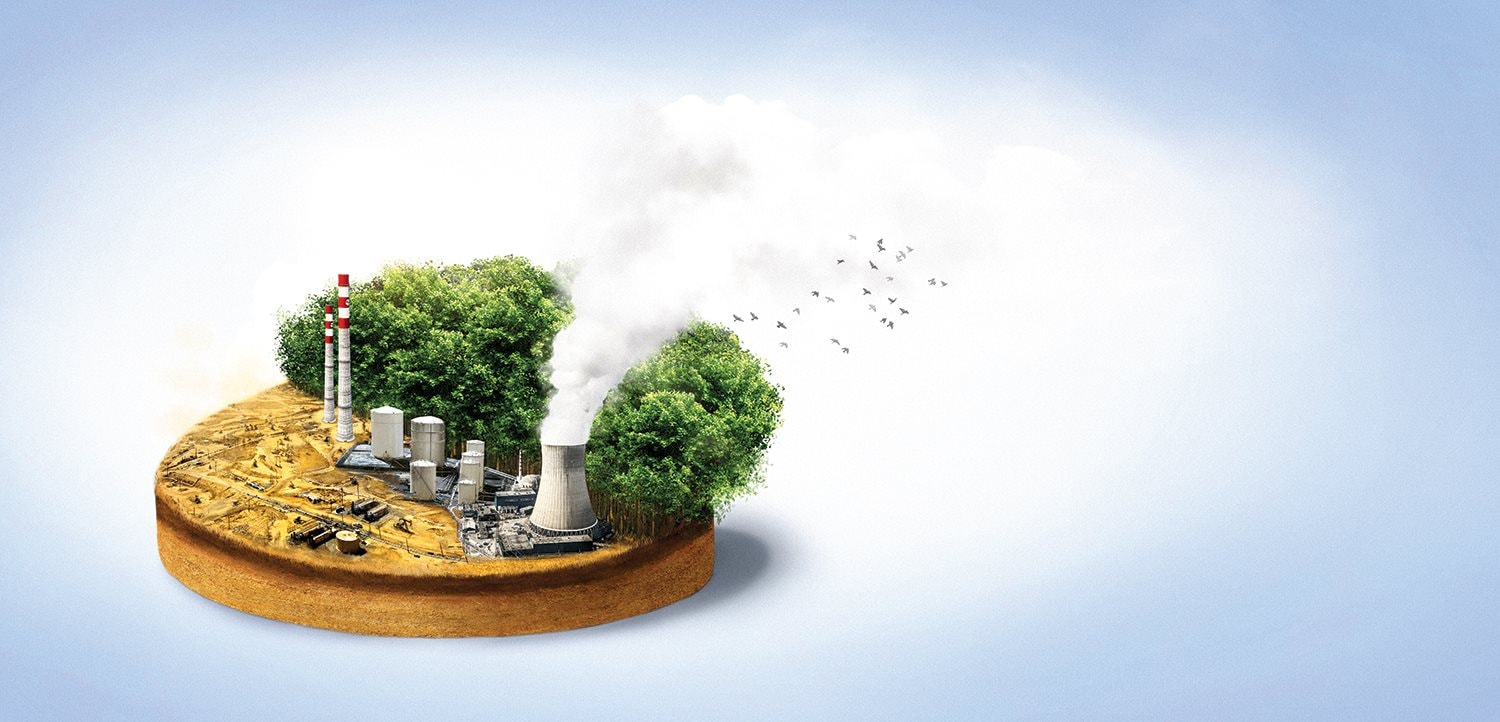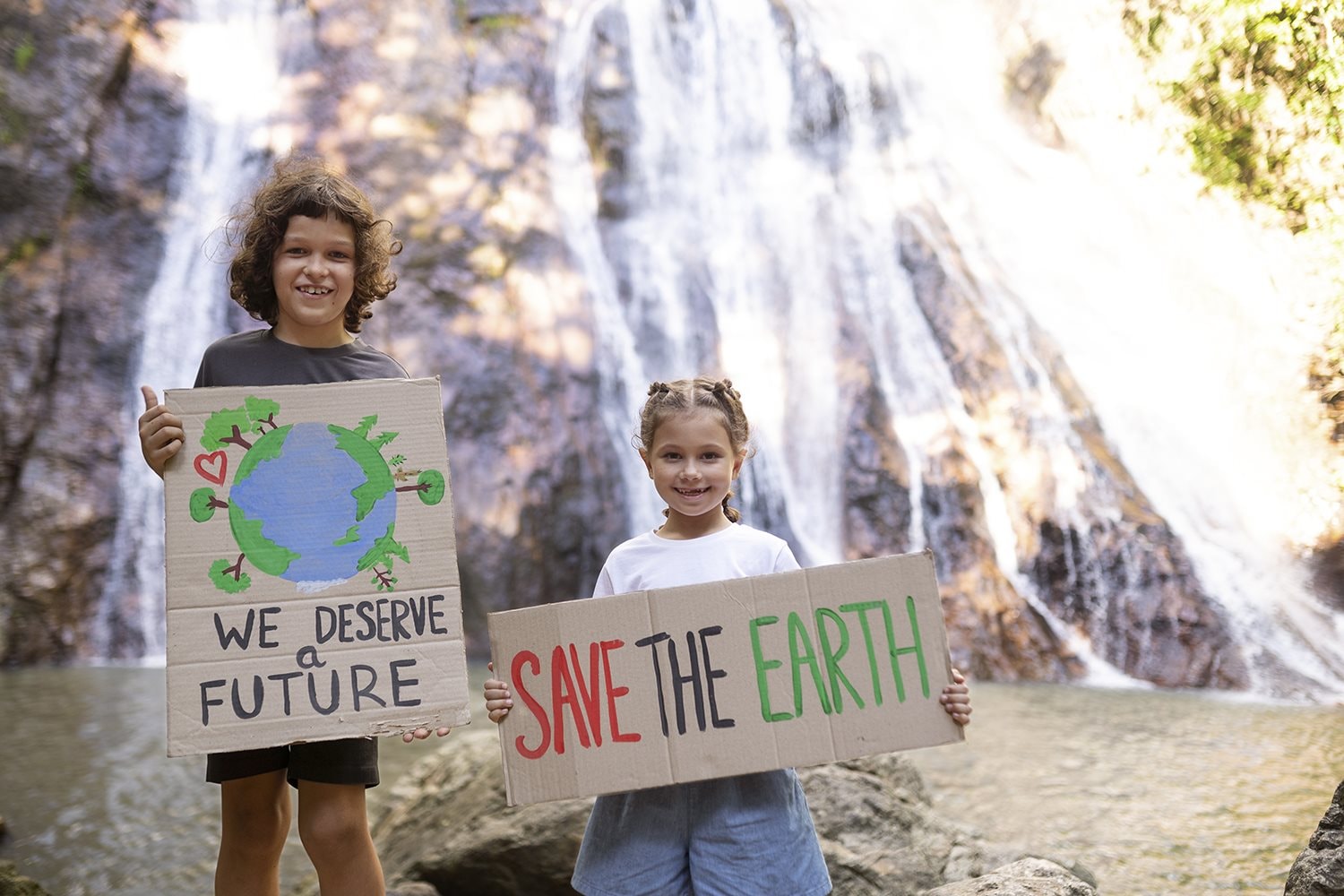Currently, Vietnam is focusing on transitioning its development model, building a green and circular economy in line with the major directions set by the 13th National Party Congress. For the logistics sector, the requirement for green logistics development is also a crucial criterion in assessing the sustainable development of the entire industry.
Climate change is a global concern as it involves the transformation of the climate system, encompassing the biosphere, atmosphere, hydrosphere, and lithosphere, both in the present and future, posing a threat to human life.
Earth is experiencing alarming temperature increases, and humanity is facing numerous dangers such as air pollution, tornadoes, floods, heatwaves, and water scarcity. Vietnam is no exception and is considered "vulnerable" to the impacts of climate change. In recent years, extreme weather events like storms, droughts, hailstorms, tornadoes, flash floods, and landslides have frequently devastated property and human lives, posing challenges to agriculture, increasing production costs, and exacerbating the consequences of poverty and hunger.

Climate change directly affects production, urbanization, and the diverse biological environment of Vietnam. In agriculture, climate change poses difficulties in managing water sources for crops, directly impacting productivity and quality. The Mekong Delta, one of the world's largest deltas, providing over half of Vietnam's rice output, is facing threats from climate change and human activities, even from upstream.
Recent temperature data indicates a warming trend in Vietnam’s climate. During the same period, annual rainfall has increased on average by 5.5%, but with varying trends depending on the region. Additionally, sea levels have risen on average by 3.6 mm/year from 1993 to 2018.
Due to climate change, phenomena such as flash floods and landslides are increasing. Rising sea levels can lead to the risk of flooding and erosion, land subsidence occurring in many places. Overexploitation of groundwater, sand, and gravel is causing subsidence, gradually lowering the land surface due to compacted sediment. This phenomenon is occurring in many places, but the Mekong Delta is particularly affected.
Because climate change has become a global concern, at the 2021 United Nations Climate Change Conference (COP26), nearly 150 countries committed to achieving net-zero greenhouse gas emissions by 2050. Vietnam has strongly committed to achieving net-zero emissions by 2050, reducing methane emissions, protecting forests, and transitioning to renewable energy.
Vietnam has long been actively implementing numerous activities to cope with climate change and fulfilling its obligations as a party to the UNFCCC, the Kyoto Protocol, and the Paris Agreement on Climate Change.
Proactively implementing the National Climate Change Strategy, approved by the Prime Minister under Decision No. 2139/QD-TTg on December 5, 2011, Vietnam has also issued the National Action Plan to implement the 2030 Agenda for Sustainable Development. This was outlined in Decision No. 622/QD-TTg on May 10, 2017, by the Prime Minister, emphasizing that sustainable development is a continuous requirement in the country's development process. It involves a close and harmonious combination of economic development with social development and the protection of resources, the environment, and proactive responses to climate change.

During the APEC High-Level Week in 2023 in San Francisco, USA, in mid-November 2023, President Vo Van Thuong emphasized that climate change is a global urgent issue requiring determination, political responsibility, and solidarity from all economies. Climate change is not the concern of any single nation because "there is only one Earth," necessitating international cooperation mechanisms on renewable energy, greening industries, developing eco-friendly agriculture (including green logistics), resource restoration, greenhouse gas reduction, and energy transition.
Scientific and technological achievements must be shared, financially contributed by wealthy nations, and the Loss and Damage Fund activated to support developing and less developed countries in coping with climate change. The global financial system needs to enhance its ability to provide green finance and efficiently mobilize resources from the private sector.
While the world has made many commitments, now is the time for all economies to fulfill historical commitments to protect the Earth and the future of succeeding generations. Vietnam is among the first developing countries to participate in the Joint Crediting Mechanism (JCM) as part of the International Partnership, implementing a comprehensive set of solutions from institutional improvement to practical implementation.
Currently, Vietnam is focusing on transitioning its development model, building a green and circular economy in line with the major directions set by the 13th National Party Congress, resolutions, and action programs. The focus is on protecting forests, afforestation, and biodiversity conservation. Additionally, international cooperation is strengthened, mobilizing all financial resources, especially green finance and energy transition, effectively.
The development of logistics activities significantly impacts the environment, a cause of climate change. In Vietnam, road transport accounts for over 95% of total emissions into the environment from freight transport activities. Conversely, climate change poses a serious threat, disrupting the supply chain. Therefore, the implementation of green logistics activities is an inevitable and urgent trend.